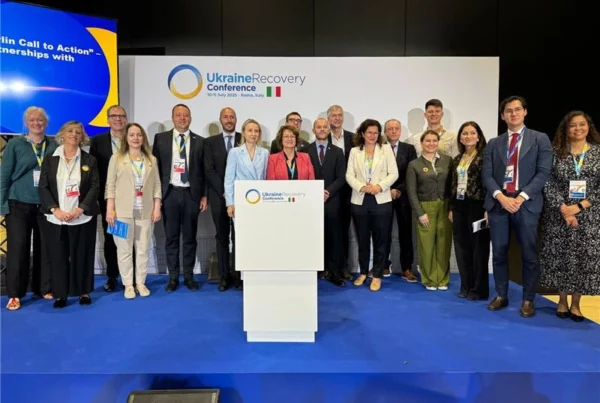Reforming the European Electricity Market: Priorities and Challenges
In March, the European Commission proposed a regulation to improve the EU’s electricity market. The reform is important for local and regional governments, since they play a central role as suppliers, distributers and consumers of electricity.While the current internal market for electricity has brought positive effects and lower prices, reforms are needed to address decarbonization of the electricity sector and gas shortages caused by Russia’s energy weaponization in the Ukraine conflict.
The past winter has made it clear for all Europeans that ensuring the security of supply and lower prices of electricity were top priorities for the years to come. The EU and Member States must increase both the production of electricity and their capacity in terms of energy storage. They also need to take strong measures to decarbonize the electricity sector in order to achieve climate neutrality by 2050. In other words, the European electricity market is at a crossroads: to move forward, the EU needs to take strong actions and work together with local and regional governments.
Facilitate local and regional governments’ work driving investments in renewable energy
Local and regional governments have important roles to play in changing the electricity sector. They are responsible for finding suitable locations for production, distribution and transmission; they also must speed up permitting, manage spatial planning, invest in energy companies, and enable consumers and energy communities.
Furthermore, they possess valuable insights due to their direct engagement with local communities, and are therefore essential in ensuring citizens’ acceptance of the rollout of renewable energy. Considering all these factors, local and regional governments must be key partners in the reform of an efficient, sustainable European electricity market.
Make electricity prices less reliant on short-term fossil fuel costs
It is important to offer the option of long-term contracts, including to individuals and smaller consumers. This helps protect them from high and unpredictable prices, especially until more renewable energy production at lower generation prices is available.
Keep emergency measures as permanent features of the Electricity Market Design
During periods of excessively high electricity prices, it is advisable to maintain certain emergency measures. These measures can include price caps, taxes on windfall profits, and reimbursements for consumers. However, they should only target fossil fuel and other phased-out energy sources to encourage investment in renewable energy. These measures should not discourage energy savings or flexibility.
Encourage better consumer empowerment and protection
Efforts should be made to empower and protect consumers, particularly vulnerable ones, when implementing renewable energy sources and energy efficiency measures. Support schemes, loans, and technical assistance can help achieve this goal. Moreover, regional and municipal energy providers, acting as a “supplier of last resort,” should receive adequate financial compensation from national or European funding to support vulnerable households and enterprises.
Promote efficient multi-level governance solutions and financial support
Collaboration among different levels of governance, following the principles of subsidiarity and multilevel governance, is crucial for success. Platforms like the Covenant of Mayors facilitate cooperation, knowledge exchange, and the sharing of good practices at EU, national, and regional levels.
Finally, to successfully implement changes at local and regional levels, it is important to provide financial resources and supportive measures, while avoiding excessive regulations and administrative burdens.
In conclusion, the Commission’s proposed regulation offers an opportunity to address challenges in the European electricity market. To achieve climate neutrality and ensure a secure energy supply, increasing production and storage capacities, promoting renewable energy sources, and involving local and regional governments are crucial. Collaboration, financial support, and efficient governance will contribute to a sustainable European electricity market.
To learn more about the measures proposed by CEMR, read the full position paper.

Climate, Sustainable Finance Officer






